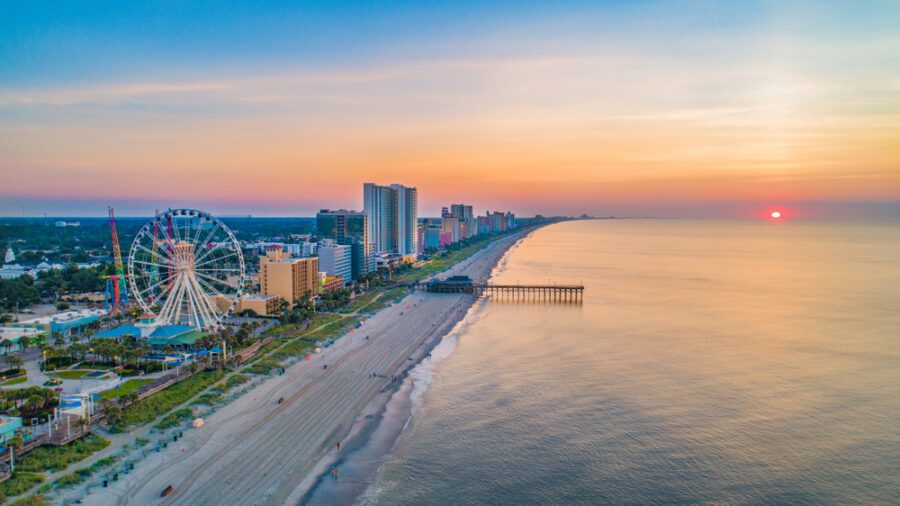
A Deeper Dive: Key Factors to Weigh
Now that we’ve painted the broad strokes of town and country living, it’s time to get personal. Your ideal retirement location depends entirely on your individual needs, priorities, and personality. Let’s break down the most critical factors, head-to-head, to help you clarify your own thinking.
Factor 1: Your Healthcare Needs
This is arguably the most important, non-negotiable factor. Your health today is not a guarantee of your health tomorrow. You must plan for your future needs.
Small Town Reality: You must do your homework. Before you even consider a town, identify the nearest hospital. Is it a small community hospital or a larger medical center? How long is the drive—not on a sunny afternoon, but how long might it be in traffic or bad weather? Use the official Medicare.gov website to find doctors in the area. Are there primary care physicians accepting new patients? If you rely on specialists—a cardiologist, a rheumatologist, an endocrinologist—find out where the nearest ones are located and if they are in your network. Consider the role of telehealth, which can help for routine follow-ups, but cannot replace in-person procedures or emergency care.
Big City Reality: The primary benefit is choice and access. You will likely have multiple hospital systems and dozens, if not hundreds, of specialists to choose from. This competition can lead to better care and access to cutting-edge technology and research. The challenge isn’t finding a doctor; it might be the logistics of getting to appointments in traffic or navigating a large, complex medical campus. However, for anyone with a significant, ongoing health condition, the peace of mind offered by a city’s medical infrastructure is often the deciding factor.
Factor 2: Your Budget and Cost of Living
Your retirement income is finite. Making it stretch as far as possible without sacrificing quality of life is the goal. Don’t make assumptions; run the numbers.
Small Town Reality: Housing is the big win. You can often dramatically lower or eliminate your housing costs. Property taxes are also generally lower. However, don’t overlook other expenses. If the town is remote, utilities like electricity or propane might be more expensive. You will spend more on gasoline because you have to drive everywhere. A trip to a major airport for a vacation could be a two-hour drive each way. Your grocery options might be limited to one more expensive store. These “hidden” costs can eat into your savings.
Big City Reality: Housing will be your biggest financial challenge. Even a small condo can cost more than a large house in a small town. Property taxes and income taxes (in some states and cities) can be much higher. However, you can save thousands of dollars a year by getting rid of your car. Using public transportation, walking, and occasionally using a ride-share service is almost always cheaper than owning a vehicle. You also have more choices for shopping, allowing you to find bargains on groceries and other goods. To get a clear picture, talk to a financial advisor or a housing counselor. You can find government-approved counselors through the U.S. Department of Housing and Urban Development (HUD).
Factor 3: Your Social Style and Community
Think honestly about how you make friends and what kind of social environment makes you feel comfortable and happy. This is deeply personal.
Small Town Reality: Social life is often centered around established institutions: churches, community centers, local clubs (like Rotary or the VFW), and town events. It is a more relational culture. If you are outgoing and willing to participate in these existing structures, you can build deep and meaningful friendships. However, if you are more of an introvert or don’t share the same interests as the mainstream, it can be hard to break in. Ask yourself: Do I enjoy the feeling of everyone knowing me, or would that feel intrusive?
Big City Reality: The city offers “a la carte” community. You have to actively seek it out, but you can find a group for almost any interest imaginable. There are walking groups, museum docent programs, university extension classes, political volunteer groups, and support groups for every situation. It requires more effort. You can’t just expect to bump into people at the post office. You have to show up, be consistent, and be willing to introduce yourself. For a self-starter, this is a world of endless opportunity. For someone who is shy, it can feel daunting.
Factor 4: Your Connection to Family
Retirement is often a time to reconnect with children and grandchildren. Your location decision will have a huge impact on how—and how often—that happens.
Small Town Reality: A quiet small town might seem like a wonderful place for grandchildren to visit. But how easy is it for them to get there? If your children have to fly into a major airport and then drive for three hours, visits might become less frequent. Consider the burden of travel on them. On the other hand, if your family already lives in a more rural area, moving to a nearby small town could put you in the perfect position to be a hands-on grandparent without being right on top of them.
Big City Reality: Cities are almost always home to major airports and train stations, making it much easier and often cheaper for family to visit you. It also makes it easier for you to travel to them. A city can also be an exciting destination for grandkids, with zoos, museums, and events to explore together. The trade-off might be space; you may have downsized to a smaller apartment with no guest room, meaning family has to stay in a hotel when they visit.









